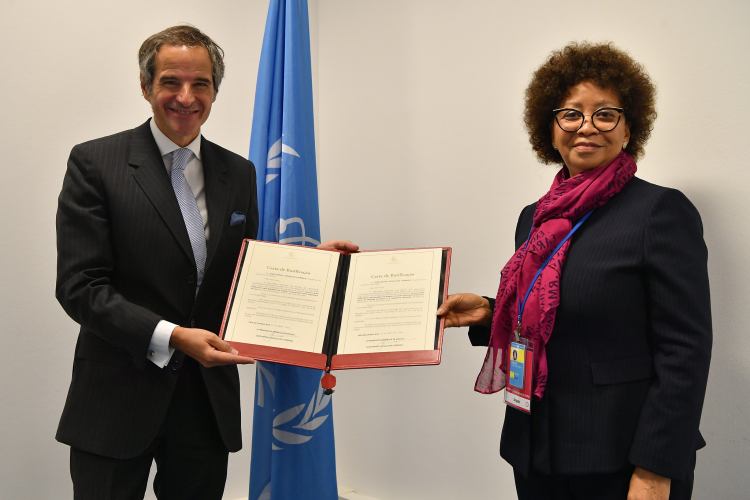Five years ago today, the entry into force of the Amendment to the Convention on the Physical Protection of Nuclear Material (A/CPPNM) marked a milestone in nuclear security. Whereas the original CPPNM requires the physical protection of nuclear material in international transport, the Amendment, which entered into force on 8 May 2016, expands the scope of the Convention to cover physical protection of nuclear facilities and nuclear material in domestic use, storage and transport. The Amendment also adds to the list of criminal offences involving nuclear material and nuclear facilities covered under the Convention, and it strengthens the basis for international cooperation.
“Every day, nuclear science and technology improve the quality of our lives. Nuclear reactors generate a third of our clean power, and radiotherapy machines help to protect and treat cancer. Around the world, nuclear applications make water safe to drink and help boost crops,” said IAEA Director General Rafael Mariano Grossi in his video message. “As we harness the benefits of nuclear science and technology, we must also recognize and address the threats to peaceful uses of nuclear material. The Convention and its Amendment play a critical role in ensuring that the nuclear material used for peaceful purposes doesn’t get into the hands of people who may want to misuse it.”
A legal framework that helps ensure nuclear material is properly secured and that serves to prevent malicious acts involving nuclear material is important for all countries, regardless of whether they operate nuclear facilities. The CPPNM and its Amendment are key parts of the legal foundation for nuclear security, setting legal obligations to establish a physical protection regime, to criminalize certain offences and to engage in and support international cooperation, for example, in the case of theft, sabotage or other unlawful possession of nuclear material.
“Joining the A/CPPNM has enhanced and strengthened Thailand’s nuclear security infrastructure, through capacity building and experience sharing with other State Parties, stakeholders and the IAEA,” said Ambassador Morakot Sriswasdi, Resident Representative of Thailand to the IAEA. “Becoming a State Party to the Convention and its Amendment enables Thailand to foster cooperation and expand access to nuclear technology and its peaceful applications.”






